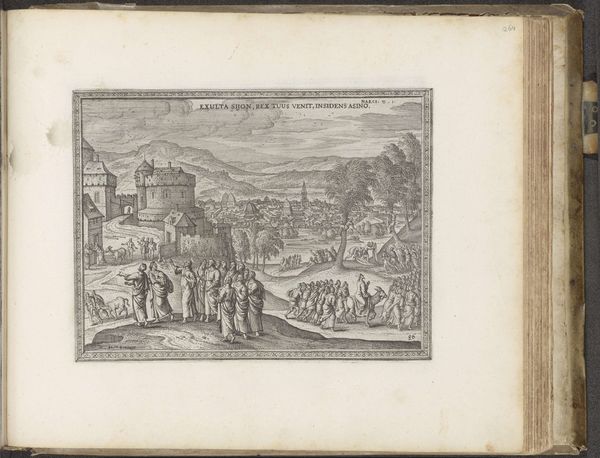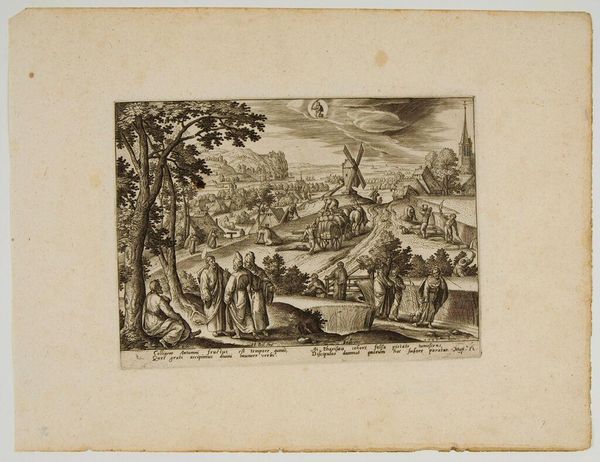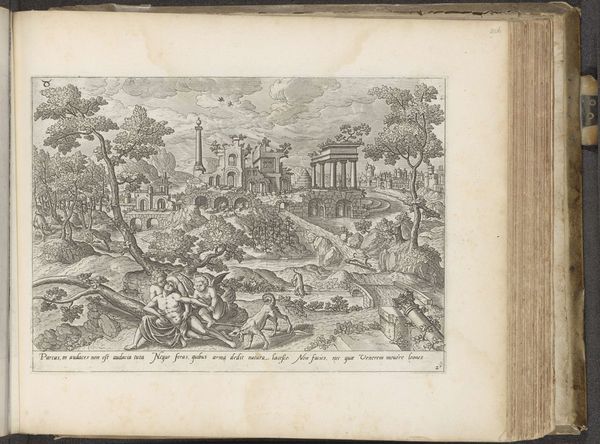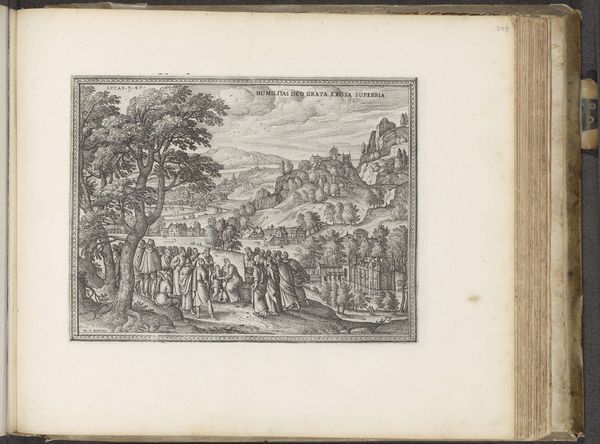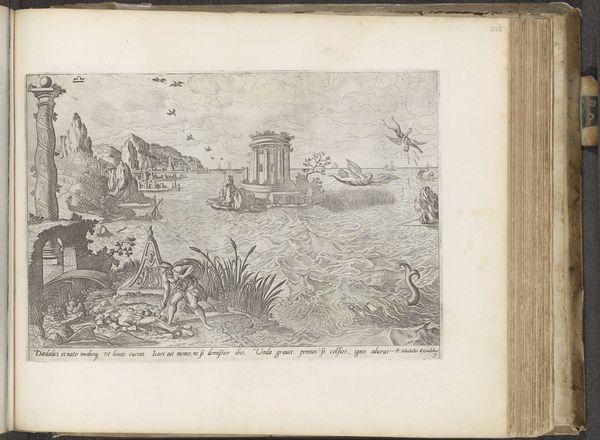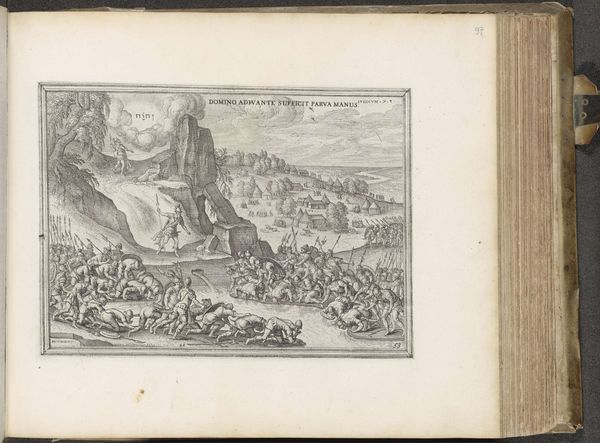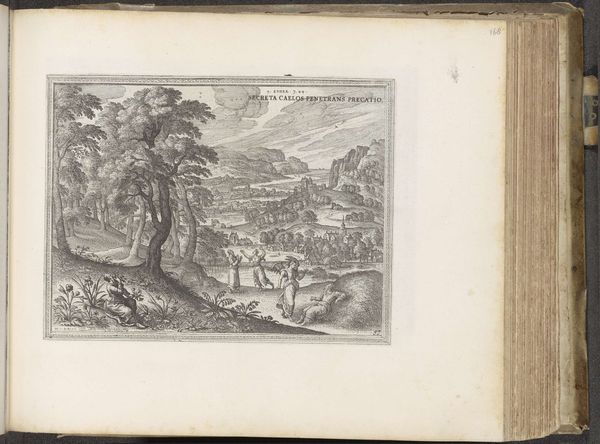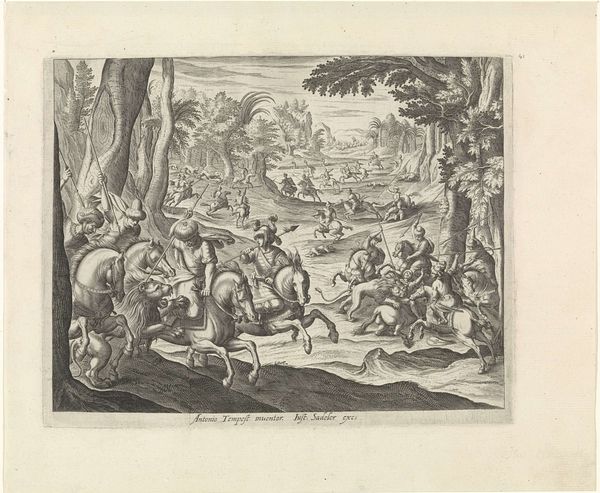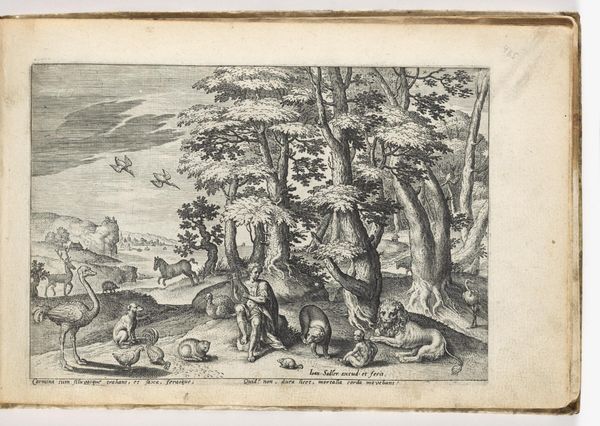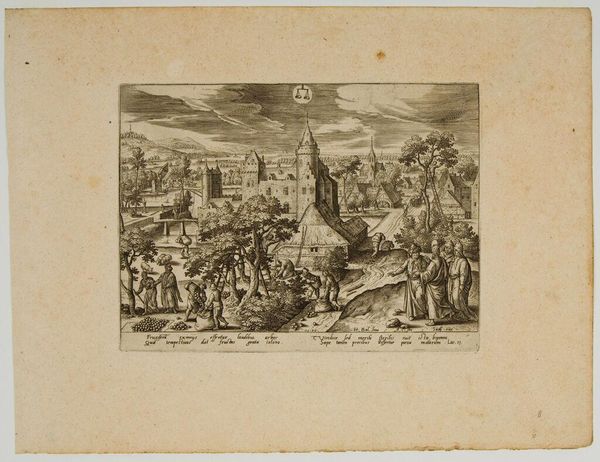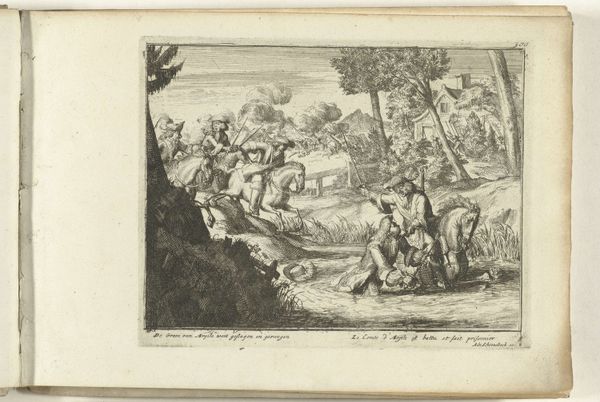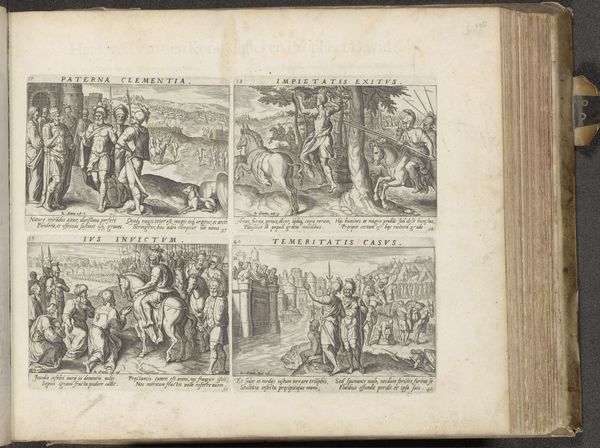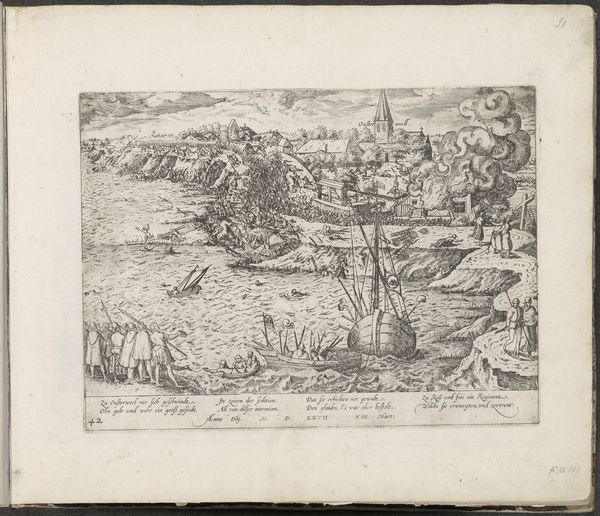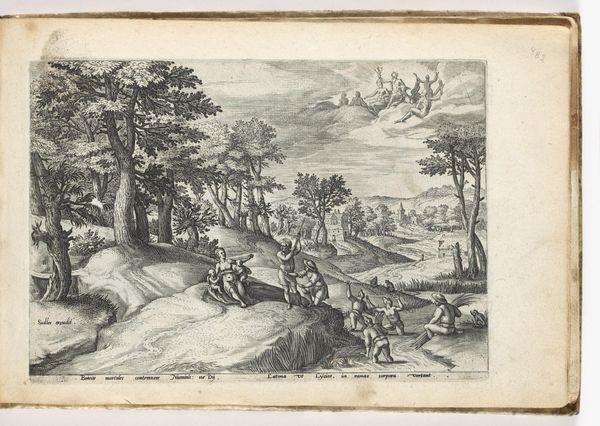
drawing, print, paper, ink, engraving
#
drawing
#
narrative-art
# print
#
mannerism
#
figuration
#
paper
#
ink
#
history-painting
#
northern-renaissance
#
engraving
Dimensions: height 187 mm, width 244 mm
Copyright: Rijks Museum: Open Domain
Pieter van der Borcht created this engraving called Vier uitersten, or Four Extremes, at the turn of the 17th century. It depicts both the end of the world, and the second coming of Christ. This imagery can tell us a lot about society at the time, in the Netherlands. Borcht was employed by the Plantin-Moretus publishing house in Antwerp, which tells us that the imagery would have been popular with a wide, literate audience. The imagery, showing signs and portents in the sky and the presence of an angel over a burning city, would have reminded viewers of Biblical texts and sermons they would have heard at church. This was a very religious society, so these concepts would have been extremely familiar and relevant. Studying the work of artists like Borcht, alongside popular publications of the time, helps us to understand the hopes and fears of people living through this period. It can help us to see them not as historical figures, but as individuals responding to the extraordinary events that shaped their lives.
Comments
No comments
Be the first to comment and join the conversation on the ultimate creative platform.
